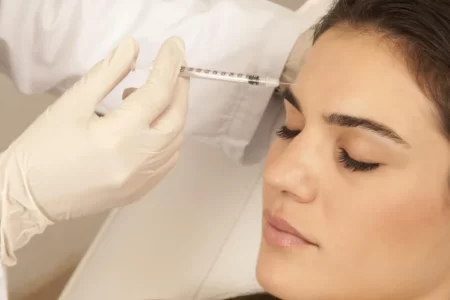
Every woman loves those alluring curves and a perfect body, and a part of that stunning figure is breasts that aren’t saggy. The post-pregnancy phase or the natural curvature of your body can lead you to explore options like breast lift surgery. You’re not alone! During the past year, various breast-related procedures have seen a 48% rise across the United States.
Moreover, while the trend of getting a breast lift or augmentation is growing, so is the amount of false information about these procedures on the internet. There are many facts available online, but at the same time, there is ample misleading information too. Many women tend to believe these misrepresentations as facts leading to unfavorable circumstances because it is your body you are playing with.
This article sets the record straight by deriving information from professional plastic surgeon accounts about the things every woman should know before getting a breast lift surgery:
Breast lifting is different from breast augmentation
That is true indeed. As the name indicates, breast augmentation entails adding volume to the breast through various methods. On the other hand, a breast lift simply elevates this part of your body into a more youthful and attractive position. Breast lift procedures are quick fixes for hanging breasts that can result from the effects of pregnancy or weight changes.
Many women choose to have a breast augmentation together with the lifting procedure as it offers a more comprehensive solution to improving the overall figure. Here, an implant is placed into the breasts just as the excess fat is eliminated from the surrounding area to make them sturdier. Implants also solve the issues of gapping between pushup bras and breasts.
Read up before opting for a procedure
Research is important before deciding on whether you want a breast lift. It is important to read up on different aspects like the types of breast lift incision, preventive post-operative care, and numerous other things. This information can offer you clarity on some of the questions you might have before you sit down with a specialist.
It is not necessary that you will have surgical drains
Surgical drains are tubes surgeons use to extract any extra fluid that may build up inside the body during or after the procedure. There is a common misconception that a breast lift surgery requires these drains to be placed in the body. This may be true in some cases, but modern techniques have allowed their use to be mitigated significantly.
When you sit down with your plastic surgeon, it is best to discuss whether they will use a drain or not. There are high chances that there isn’t going to be a need for one since many professionals no longer require them for breast lifts, augmentation, or even if you are getting a combination of both procedures done.
For some time, your breasts will look larger than expected
Indeed they will, and this is from the swelling that persists for some time after the procedure. It is normal and there is nothing to worry about. If you have any concerns, discuss them with your surgeon; they can offer better advice on how to handle the situation.
You may be required to wear a post-surgery bra
That is also true. Your surgeon may recommend a post-surgical bra since you will have swollen breasts and incisions that can hurt. However, you are only to wear it if it is comfortable. If not, you can discuss it with the surgeon and they can suggest some alternatives that are easier to handle and don’t risk rupturing the cuts that were made on your breasts.
If you are uncomfortable wearing a post-surgical bra, you can always shop for traditional ones, but ensure you buy those with no underwire as they can rub against the incisions. Also, don’t spend too much on buying new bras in the first six weeks because that is when your breasts will return to normal after healing. Once this phase has passed, you can buy all the sexy new bras you want.
Breast lift surgery isn’t extremely painful
If this were the 19th century, that may be true, but thanks to modern surgical techniques, breast lift surgeries are relatively painless. Mastopexy, as this procedure is called professionally, is well-tolerated, especially for women, and taking a simple painkiller for the first few days can easily help you get through the process.
When you get a breast augmentation together with the lift, you may have to face more soreness for a longer period, but that is not exactly painful. It is as if you pulled a round of fifty or more pushups. Moreover, personal pain tolerance is also a factor, as some women can feel more than others. If you are getting a lift post-pregnancy, you can rest assured that you’ll be prepared for what is to come.
Breast lift surgery restricts movement considerably
Once again, that is not true at all. Most patients are up and walking within a few hours of the surgery. Of course, performing any heavy lifting or excessive exercises like marathon training, Pilates, pushups, and yoga for at least four weeks post-surgery is not recommended. Other than that, normal daily activities like cooking, walking around, and shopping are no big deal.
Different patients can undergo different circumstances, and your surgeon will be able to give you more ideal recommendations about movement post-procedure. Also, if you read somewhere you won’t be able to move your arms for weeks, don’t pay any heed to that either. Nothing is done to the arm muscles, so you can move them freely.
Still, it is important to be careful not to take this to mean that you can go around lifting heavy objects to rejoining the gym any time soon.
Conclusion
A breast lift surgery is like any other intrusive procedure you may get done to your body. There are a lot of misconceptions and pretenses associated with it, but unless you are able to talk to a professional about their authenticity, it is best not to pay any heed to them at all.






